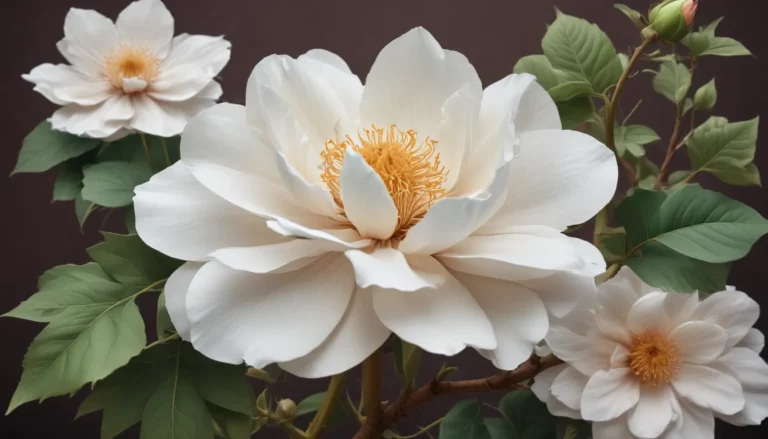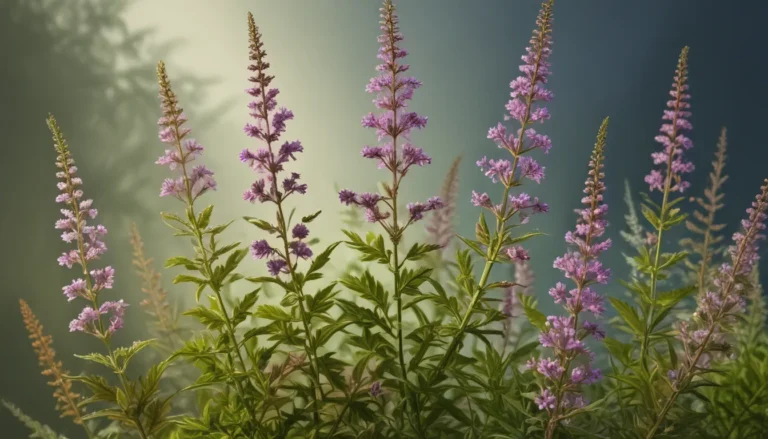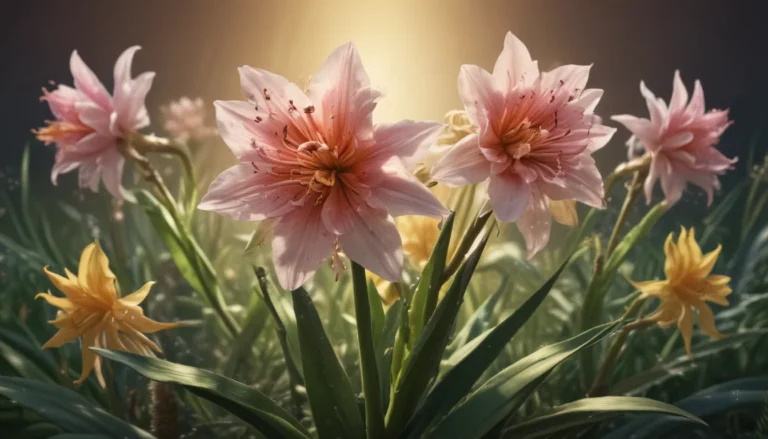The pictures we use in our articles might not show exactly what the words say. We choose these pictures to make you interested in reading more. The pictures work together with the words but don’t take their place. The words still tell you the important facts.
Rose bushes have enchanted humanity for centuries, gracing gardens, poems, and artworks with their timeless charm and fragrance. These iconic flowers, belonging to the genus Rosa, come in a vast array of species and cultivars, each with its own unique allure. Let's embark on a journey into the alluring world of rose bushes, unveiling their captivating traits and shedding light on their significance in horticulture and culture. From their rich history to their remarkable resilience, rose bushes continue to fascinate enthusiasts worldwide. Join us as we unravel 10 intriguing facts about these beloved symbols of affection and beauty.
A Symbol of Love and Beauty
Roses have been cherished for ages for their exquisite beauty and captivating scent, symbolizing love, passion, and romance. The rose bush, a perennial flowering plant of the genus Rosa, has become a staple in gardens, landscapes, and floral arrangements worldwide, adorning these spaces with its breathtaking blooms.
The Vast and Diverse Rose Family
Belonging to the Rosaceae family, roses are part of a diverse group of plants that includes fruits like apples, pears, and cherries. This expansive plant family showcases the adaptability and versatility of roses and their relatives, highlighting their significance in the botanical world.
The Multitude of Rose Varieties
With over 100 species and thousands of cultivars, roses come in a mesmerizing range of colors, shapes, and sizes. From classic red blooms to delicate pink hues and vibrant yellows, each variety of rose possesses its own unique charm, catering to diverse preferences and gardening styles.
A Rich Cultural and Historical Legacy
Throughout history, roses have held profound cultural significance, featuring prominently in art, literature, and folklore. Whether in ancient mythology, medieval heraldry, or modern-day celebrations, roses have symbolized enduring appeal and timeless allure.
Source of Fragrant Essential Oils
Rose essential oil, extracted from the petals of select rose varieties, is highly prized in perfumery, aromatherapy, and skincare. Known for its enchanting aroma and therapeutic properties, rose oil adds a touch of luxury to various products and rituals, indulging the senses.
Sunlight and Watering Needs of Rose Bushes
To flourish and produce vibrant blooms, rose bushes require ample sunlight, around six hours per day, and regular watering. Proper care and maintenance are crucial for cultivating healthy and robust rose bushes in gardens and landscapes, allowing them to thrive.
Vitality Through Pruning
Regular pruning is essential for promoting air circulation, removing dead or diseased wood, and shaping the growth of rose bushes. This horticultural practice helps maintain the overall health and vigor of the plants, enabling them to bloom abundantly.
Attraction to Pollinators and Wildlife
The blossoms of rose bushes attract bees, butterflies, and other pollinators, supporting biodiversity and ecological balance. Additionally, the hips of certain rose species serve as a food source for birds and wildlife, contributing to the interconnectedness of natural ecosystems.
Susceptibility to Pests and Diseases
Despite their beauty, rose bushes are vulnerable to pests and diseases such as aphids, powdery mildew, and black spot. Implementing preventive measures and utilizing organic pest control methods can help protect rose bushes from potential threats.
Endless Symbolism and Meaning
Roses convey a myriad of emotions and messages, from love and admiration to secrecy and farewell, making them a versatile and cherished symbol across cultures. Their symbolic significance adds depth and sentiment to bouquets, gifts, and floral arrangements, enriching these gestures with timeless beauty.
In conclusion, rose bushes not only enthrall with their beauty but also captivate with their rich history and symbolism. With their diverse varieties, stunning blooms, and cultural significance, roses have remained beloved across cultures for centuries. Whether you're an experienced gardener or a newcomer to the world of plants, nurturing and caring for these timeless beauties can be a rewarding and fulfilling experience. Embrace the allure of rose bushes, and let their elegance grace your outdoor spaces with timeless splendor.
FAQs
Q: How often should I water my rose bushes?
A: Rose bushes generally require regular watering, especially during dry spells. It's recommended to water them deeply at least once a week, ensuring that the soil is moist but not waterlogged.
Q: What is the best time to plant rose bushes?
A: The ideal time to plant rose bushes is in early spring or late fall when the weather is cooler, allowing the roots to establish themselves before extreme temperatures set in.
As we strive to provide trustworthy and engaging content, each fact on our site is contributed by real users like you, ensuring a wealth of diverse insights and information. Our dedicated editors meticulously review each submission to uphold the highest standards of accuracy and reliability, guaranteeing that the facts we share are not only fascinating but also credible. Explore and learn with us, trusting in our commitment to quality and authenticity.






